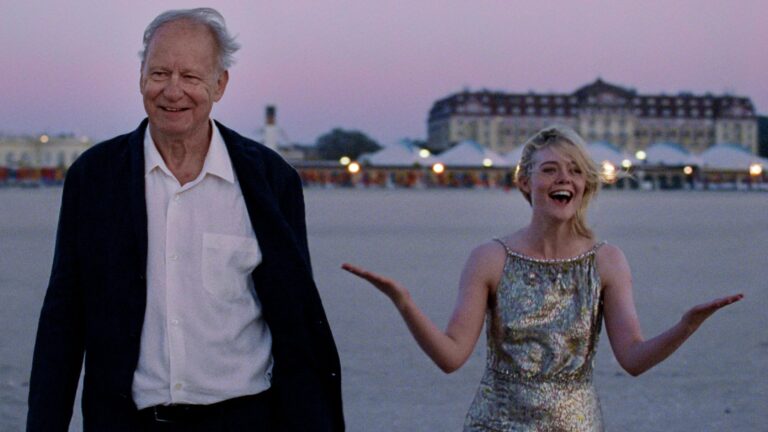Tessa Thompson takes center stage in Nia DaCosta’s bold reimagining of Henrik Ibsen’s Hedda Gabler, transforming the classic tale of desire and despair into a vivid, modern spectacle. Over the course of one electrifying night, the film explores Hedda’s restless spirit and the irreversible ripples of her choices, delivering a performance that commands attention without revealing all its secrets.
What You’ll Find in This Article
- The Snapshot: Hedda in a Nutshell
- Tessa Thompson’s Performance in Hedda
- The Career of Tessa Thompson
The Snapshot: Hedda in a Nutshell
A reimagining of Henrik Ibsen’s classic 1891 play Hedda Gabler follows the title character as she finds herself torn between the passion of a past love and the quiet suffocation of her present life. Over the course of one intense night, her actions will have long-lasting consequences for everyone involved.
Hedda has a limited theatrical release on October 22, and streams exclusively on Amazon Prime starting October 29.
Tessa Thompson’s Performance in Hedda
There is something eminently tragic about Henrik Ibsen’s Hedda Gabler, a woman who wants to live a life of luxury, but married an academic with no fortune. She’s bored in her relatively new marriage and decides that she wants to influence a person’s fate, so when she gets the opportunity to do just that, she goes for it, to disastrous results.
Director Nia DaCosta’s adaptation of the play takes some large liberties, turning the play’s dinner party into an enormous bash, with dozens of people and plenty of activity in the mansion where the action is set. There’s also the fact that the character of Eilert in the play, Hedda’s former lover and a rival to her new husband, George, gets a gender switch to Eileen, and is played by German actress Nina Hoss. It adds a level of sexiness the play doesn’t always possess, and when it’s paired with the sensuality that Tessa Thompson brings to the lead role, the movie becomes a refreshing and alluring update to a play that, to some, can come off as a bit stuffy.
There’s nothing stuffy about Thompson, though. She has always brought a certain sex appeal to her work in a way that not all performers can, and this is no different. Hedda is the center of every room she enters and in the middle of every conversation that happens around her. Thompson’s Hedda is a magnet for attention, both good and bad, and as she floats from room to room, all eyes are on her all the time. Even as party guests get together for secret trysts or go skinny dipping in the pond behind the house, people are fascinated by Hedda.
Ibsen’s work is a classic for a reason, as it introduced one of literature’s first fully developed neurotic female protagonists. Hedda is one of the great theatrical female roles, so it makes sense that Thompson would want to play her. Most actresses worth their salt would, and Thompson takes full advantage of it. She oozes charisma as Hedda, while also trying to hide her desperation. She needs to destroy Eileen so that George will succeed, but has to do it in a way that no one else will suspect.
The play is over 130 years old, so it’s no spoiler to reveal that Hedda destroys the manuscript that is Eileen’s life’s work, one which will basically destroy George’s career before it can even get off the ground, and in the process, take away any chance Hedda has at the life she feels she deserves.
Hedda is a manipulative woman whose motivation becomes existential, and Thompson’s eyes never stop moving. She’s constantly keeping tabs on everyone and everything around her, but doing so subtly. That’s where so much of her power comes from. Thompson doesn’t overperform, and she tends to bring a stillness to her work, which is in play here even when flaunting her moves on the dance floor or joining her guests for a dip in the pond. Thompson’s Hedda is the same desperate, neurotic mess that Ibsen created, with a raw power that DaCosta’s script instills in her. There’s never a time in the course of the movie’s zippy 105-minute running time when Thompson isn’t in command, even when Hedda isn’t. It’s a powerhouse performance in a classic role that will almost certainly have the actress in the conversation come awards season. She’ll deserve every mention she’ll inevitably get.
The Career of Tessa Thompson
It’s sometimes hard to believe that Tessa Thompson has been on screens for more than two decades. Her first breakthrough was as Jackie Cook in the second season of the cult classic TV series Veronica Mars, back in 2005. What might have happened was that she became an instant star, but instead, she spent most of the next decade in small supporting roles and doing an episode or three of this TV show or that one. It took until 2014 for her to get a second breakthrough, in Justin Semien’s indie hit Dear White People. That same year, she showed up in Selma, and a year later, the first of two really huge breakthroughs happened. She was cast as Michael B. Jordan’s love interest, Bianca, in Creed, and then was cast as Valkyrie in Thor: Ragnarok, stealing every scene in which she appeared in the process. Now, she really was a movie star.
A lead role in Boots Riley’s Sundance hit Sorry to Bother You hit theaters in 2018, as did Alex Garland’s Annihilation, opposite Natalie Portman. More Creed and Marvel movies followed, as did another starring role opposite Thor himself, Chris Hemsworth, in the attempt to reboot another major franchise. Men in Black: International was a box office failure, but Thompson still shone in it, because of course she did. She starred in the made-for-TV movie Sylvie’s Love, earning an Emmy nod in the process, and did 30 episodes of HBO’s seminal Westworld series. She’s also got a fourth Creed movie coming soon, as well as the starring role as an adaptation of Alice Feeney’s novel His & Hers, which will debut on Netflix in 2026.
Whether or not she earns an Oscar nod this year for Hedda, one thing’s for certain: it won’t be the last time people talk about her for one.
Final Takeaways
Tessa Thompson’s portrayal of Hedda Gabler offers a masterclass in commanding presence and nuanced performance, showing how an actor can embody complexity without overplaying it. Her ability to balance charisma with subtle desperation is a reminder that powerful acting often comes from what’s held beneath the surface. For actors looking to make their mark, there are clear takeaways from this standout role.
- Own every scene you’re in, even when you’re not the center of attention; presence is a quiet but constant force.
- Embrace stillness and subtlety. Sometimes less is more when conveying deep emotion or tension.
- Study your character’s motivations thoroughly to ground even the most dramatic choices in believable intent.
- Use your eyes and body language as tools to communicate what words can’t; they can reveal layers of your character’s inner life.
- Don’t shy away from complex, flawed characters. These roles often offer the richest opportunities to showcase range and depth.
You may also like:














